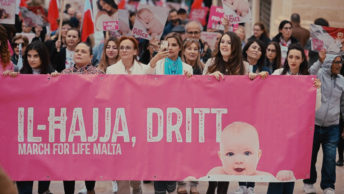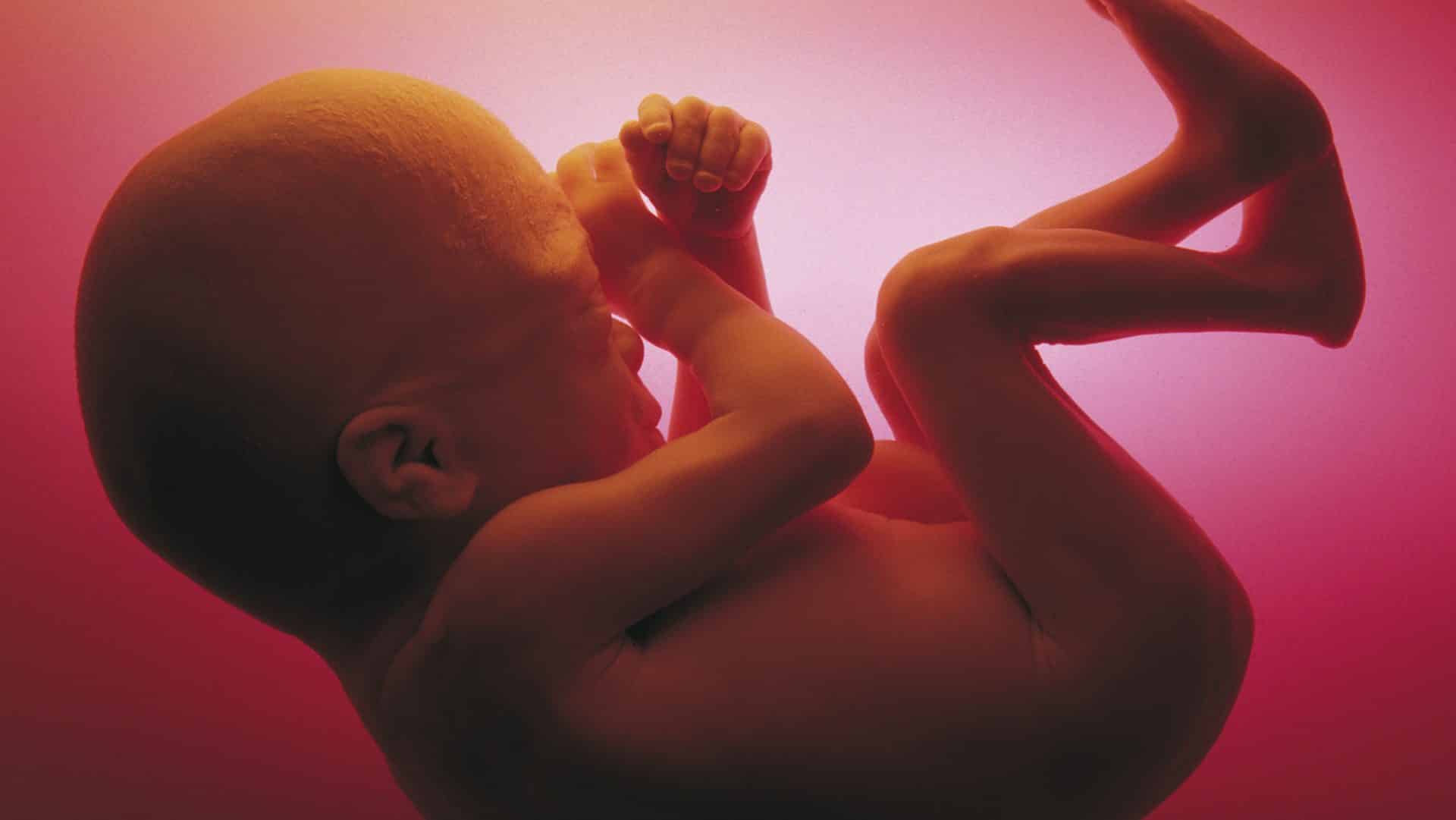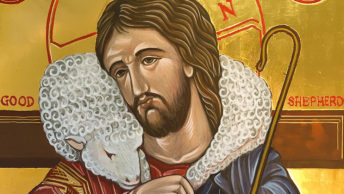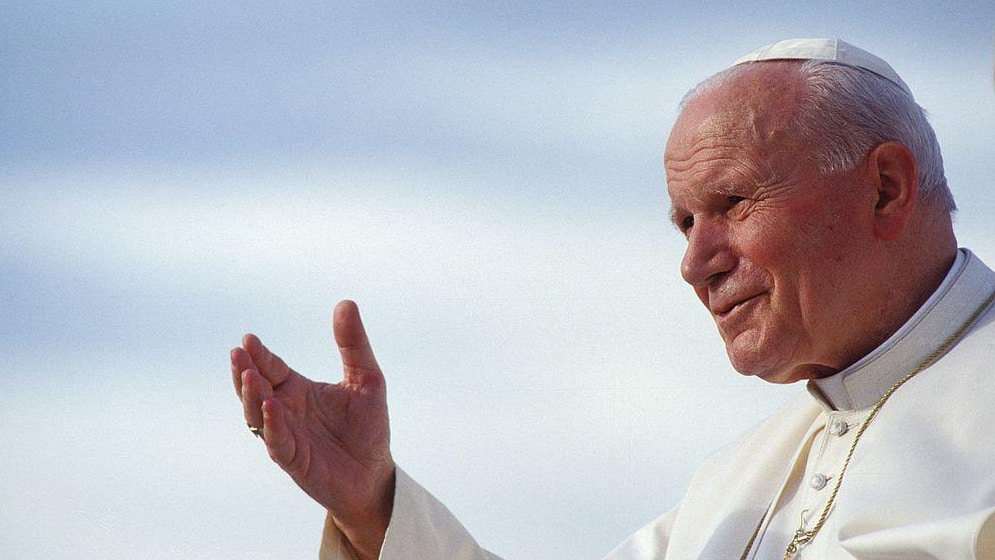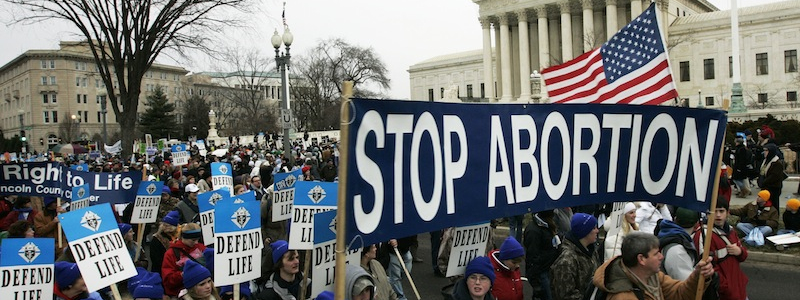
On January 22, 1973, the United States Supreme Court—in its Roe v. Wade decision— overturned the laws of all fifty states prohibiting abortion, and, with its companion decision Doe v. Bolton, created a supposed constitutional right to abortion for practically any reason throughout the entire nine months of pregnancy. The next day The New York Times, then as now a very liberal newspaper, carried the triumphant headline “Supreme Court Settles Abortion Issue.” Fortunately, the Times’ headline was completely wrong. The 7 – 2 decision by the Court launched an all-out war on innocent, unborn human life, with over 55 million victims so far, but the political and cultural issue of abortion hasn’t quietly gone away since then, as the abortion industry and its allies in politics and the media hoped and assumed it would. Over the past forty years, millions of ordinary, dedicated Americans have stood up to be counted as being on the side of the unborn. They’ve participated in huge right-to-life rallies and marches, lobbying campaigns, and get-out-the-vote efforts; they’ve opened and staffed crisis pregnancy centers and counseling agencies; they’ve created local, state, and national right-to-life organizations and political action groups, with Michigan’s being perhaps the most powerful and respected in the nation; and, above all, they’ve prayed and fasted, worked and sacrificed, persevered and believed. The only parallel in American history is the abolitionist, or anti-slavery, campaign of the mid-1800s—and that comparison is a fitting one, for just as slavery is now looked upon with shame and abhorrence, so it will be one day when future Americans look back in dismay on the time when abortion was legal in our country.
It is not a question of whether the culture of death will be overturned, but of when. Not only is the pro-life movement on the side of truth, justice, and love; its position is also supported by logic and by an objective understanding of medical and scientific facts and of traditional and uncorrupted legal principles. The abortion chapter of American history is an aberration and abomination that will sooner or later be swept away—either as a result of national repentance, or of divine judgment. You and I must decide where we’ll stand when that moment of truth arrives. As Catholics, it’s a very easy choice: we belong to a pro-life Church; no other position is morally possible or consistent with divine grace, and the Lord will personally ask each one of us what we did to defend His unborn children. Therefore, it’s not enough merely to claim the pro-life label; we must be God’s faithful servants by making sure our words are matched by our deeds.
The readings for the 27th Sunday in Ordinary Time not only speak of faithful service; they’re also very appropriate for Respect Life Sunday. In the Gospel of Luke, Jesus says that servants who are simply doing their duty shouldn’t expect special recognition or rewards; if they remain humble and faithful, they will be repaid lavishly in the kingdom of God, but not necessarily before. Most people involved in the right-to-life movement aren’t looking for recognition and popular approval (and they know that any attention they receive from society will probably be very hostile and unflattering); they’re trying to do the right thing because it’s the right thing, and out of love for God. This is an example for us. As St. Paul’s 2nd Letter to Timothy states, “God did not give us a spirit of cowardice but rather of power and love and self-control”—and the Lord expects us to use this gift in opposing evil and defending the good. The struggle has been a long, difficult, and discouraging one, and the despondent words of the prophet Habakkuk from the 1st Reading resonate in our hearts—but the Lord responds, “the vision still has its time, presses on to fulfillment, and will not disappoint; if it delays, wait for it, it will surely come. . . .” God’s victory over Satan’s culture of death is guaranteed, and if we have faith at least the size of a mustard seed, we can play a vital role in helping bring about its arrival.
A Maryknoll missionary priest once wrote, “The woman who came into my rural parish rectory in Korea from a distant outstation was obviously well advanced in pregnancy. ‘Father, I need a dispensation,’ she said. ‘A dispensation for what?’ I asked. She replied, ‘So that I can have an abortion. My husband was just killed when he fell from a high scaffold, doing construction work in [the city of] Seoul. Now I’ll have to go out to work, and I don’t see how I can care for a baby while I’m working.’ I considered her request and remembered a Sister in charge of an orphanage in Pusan. I phoned and asked if she would accept the baby. ‘Of course, Father,’ she replied. I told the woman that if she gave birth to her baby, I would gladly take it to the orphanage. Visibly relieved, she promised she would. Weeks went by without her appearance, and I began to worry. However, when I visited the chapel in the outstation where she lived, there she was, smiling and holding her child. ‘What happened?’ I asked. ‘Oh, Father, when I saw my baby, I just couldn’t give it up,’ she said. ‘I’ve decided with God’s help I can manage after all’” (Gerald Farrell, M. M., Maryknoll Magazine, March 2004).
This is a simple story of how compassion shown by a Catholic helped a desperate woman make the right choice, thereby saving an innocent human life. If we want to be true followers, servants, and friends of Jesus, we must make and live out a similar commitment to defending the defenseless. We must be well-informed on the issues of abortion, euthanasia, and stem-cell research, so that we’re ready if an opportunity arises to share God’s truth; we should be aware of our local resources and agencies, so that if a desperate person seeks our help, we can make a proper referral. We should vote, and let our elected officials know our stand on the issues, so as to fulfill our God-given duty to serve as leaven or yeast in our society. Above all, we should pray: for the guidance and courage to know and do God’s will, for the protection of innocent human life, for all women who find themselves in desperate situations, for the conversion of everyone involved in the abortion industry, for the moral and spiritual renewal of our country, and for the coming triumph of God’s Kingdom over the culture of death. It’s said that, through the intercession of Our Lady of Guadalupe, the tragedy of abortion in our country will one day come to an end—and if we want our eternal destiny to be secure, we must make sure we’re on the winning side.



